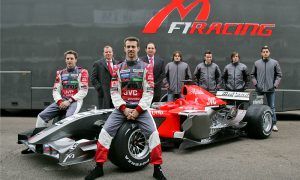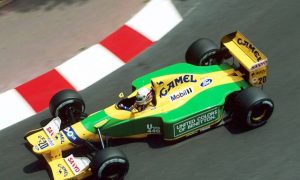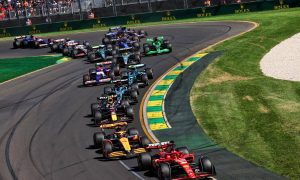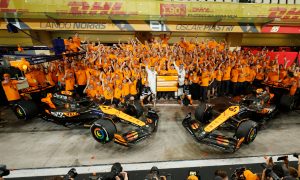F1i looks at the latest offering to the motorsport gaming genre - Motorsport Manager - and believes it could be the start of a successful series

©SEGA
While racing games are plentiful, Formula One fans have often been short of gaming options compared to other sports. The technicality of motorsport can make it difficult to give an authentic experience away from the driving, but last month a new kid rode into town…
Motorsport Manager is an attempt to take the massively successful Football Manager series into the racing world. From developers Playsport - backed by FM’s Sega - Motorsport Manager puts you in control of a team and challenges you to develop it to become race winners and climb the motorsport ladder.
So, does it work?
Well, let’s get one thing clear, first. This is not a licenced FIA or Formula One game, so you’re not going to be competing as any of the current teams that exist in motor racing, so you have teams based on those currently racing instead - Scuderia Rossini is Ferrari, Steinmann Motorsport is Mercedes etc - which is a drawback. Of course you would like to lead Manor to championship glory or even finally take Carlin to F1, but the other key ingredients are all in place to keep gamers hooked.
Progression is key in management games, with success even more gratifying if you’ve developed something to reach the top. To that end, Motorsport Manager allows you to start with a team at one of three levels of the single seater ladder. If you begin at the bottom, you’ll be with a small team in the European Racing Series, with the prospect of climbing through the Asia-Pacific Super Cup to the World Motorsport Championship.

©SEGA
The European Racing Series is a good proving ground, with spec front and rear wings ensuring racing is relatively close. So the emphasis here becomes tuning that set-up during practice ahead of the race. The impatient can skip the session, but getting your drivers’ feedback helps when it comes to the race situation, and if they get enough knowledge of a tyre compound it will pay you back in improved race performance.
At this level, qualifying doesn’t take place as there are reverse grids, which means you’re always in a race regardless of your starting position. And the race scenario is thoroughly engrossing. You’re trying to nail your strategy, get your drivers pushing at the right times and keeping an eye on the car’s condition. That’s a lot to look after - and can be difficult to juggle with two cars - but like all good management games there’s no perfect science as your driver’s performance can make or break the end result.
A lot hangs on each race performance, too. While you may be pleased with the multi-million pound sponsorship deal you’ve secured, many then carry a target finishing position. Obviously the highest the target the more money on offer, and the satisfaction from achieving this - or sometimes the pain of missing out as your driver slips back on worn tyres late on - is addictive.
The result also then has a major knock-on effect on the other aspects of the game, namely team development. That money can be spent designing and manufacturing new parts to improve performance - which can be expensive but is a necessity as all your rivals do the same - or on expending your facilities. The latter is even more expensive but is crucial as it unlocks further development potential. As you move up to the top series, there’s more to play with, and therefore more to manage.

©SEGA
While you’re limited with how many staff members you can play around with, you’ve still got to sign your drivers, chief engineer and race mechanics, and then get your team working on parts away from races. Add in the need to keep your chairman happy, as well as being able to influence the future of the championships (to benefit you, of course) through Global Motorsport Association votes, and there’s plenty for you to be worrying about directly.
Where Motorsport Manager has done so well is in keeping gamers attracted to both the racing and team improvement aspects. Granted, you may start a race weekend desperate to see your new test track completed, but by the time you start practice you’re usually immersed in chasing the result which will bring in more money to build something else, too.
Of course, there are flaws. For example, the tutorial from the start makes the game feel overwhelming initially, but simultaneously drags on to the point you’d rather just learn from your mistakes. There are also often clear responses to dilemmas - unless you want to set yourself back - and the race engine sees massive fluctuations in pace, especially if your driver is a little hesitant lapping cars…
That said, the negatives are all understandable for a first go at the game in full PC spec. Motorsport Manager is an immersive offering which shows there is a future in racing management, and shows the series has the potential to be a definite success.
F1i verdict: 8/10
Silbermann says ... Ignore Flavio, get Alonso in
INTERVIEW: Stoffel Vandoorne: The long wait is over
TECHNICAL: Under the skin of the Force India VJM09
FEATURE: Nico Rosberg in numbers
Keep up to date with all the F1 news via Facebook and Twitter

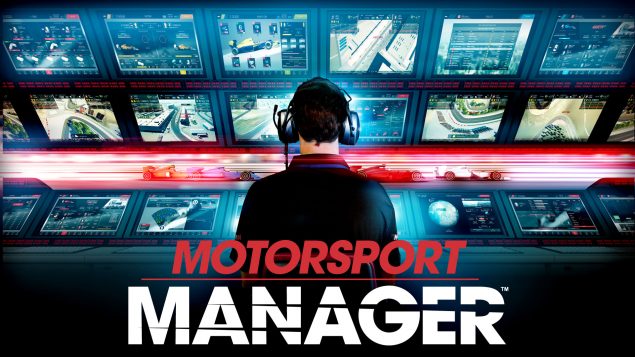 '
'

